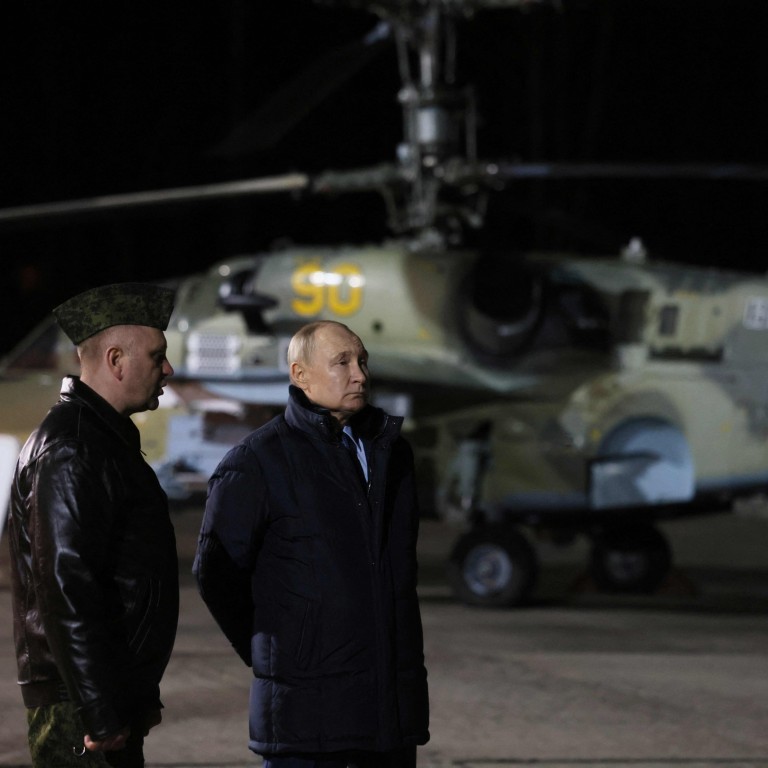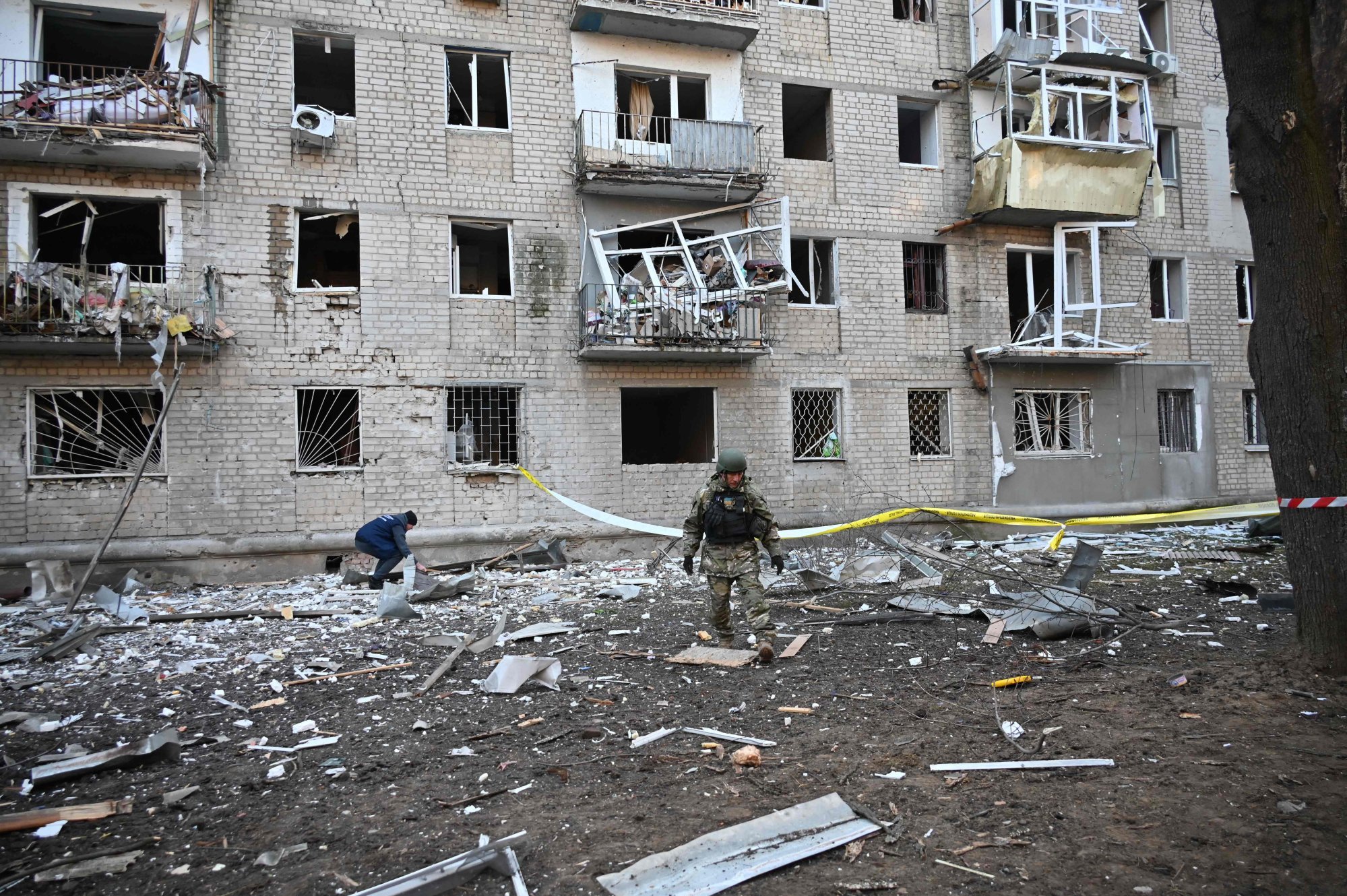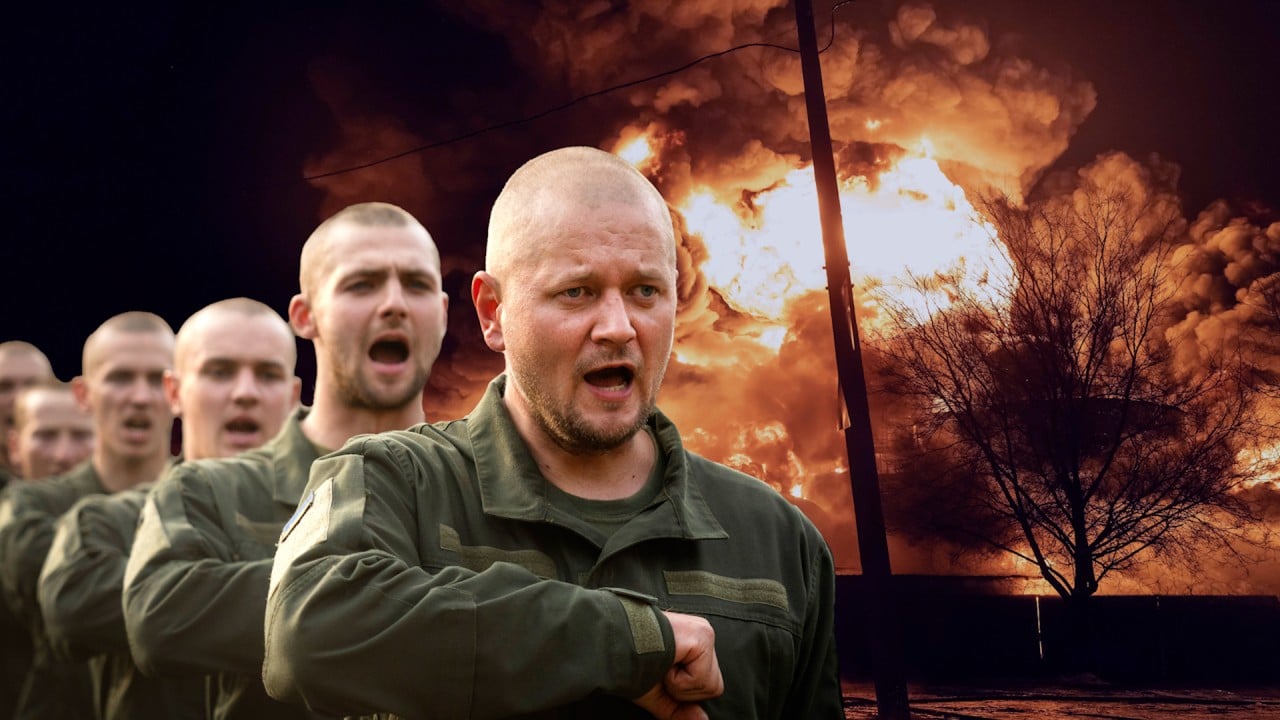
Ukraine war: Russia’s Putin says nuclear-capable F-16 fighter jets won’t change things on battlefield
- The Russian president told military pilots that the fighters would be legitimate targets, wherever they might be
- His remarks came as Ukraine said that the aircraft should arrive in the country in the coming months
If Western countries supply Ukraine with F-16 fighters, the aircraft will not alter the situation on the battlefield, Russian news agencies quoted President Vladimir Putin as telling military pilots on Wednesday.
But the fighters, he was quoted as saying, can carry nuclear weapons and Moscow would have to take account of that in its military planning.
“If they supply F-16s, and they are talking about this and are apparently training pilots, this will not change the situation on the battlefield,” Tass quoted Putin as telling pilots at a gathering northwest of Moscow.
“And we will destroy the aircraft just as we destroy today tanks, armoured vehicles and other equipment, including multiple rocket launchers.”
Putin noted that the fighters had the capability to carry nuclear weapons “and we also must consider that in the way we organise matters”.
Ukraine drone strikes on Russia’s oil refineries mark new phase of war
The F-16s, he said, would be legitimate targets, wherever they might be.
“Of course, if they will be used from airfields in third countries, they become for us legitimate targets, wherever they might be located,” he was quoted as saying.
Putin also said Moscow had no plans to attack a Nato state.
“We have no aggressive intentions towards these states,” he said, according to a Kremlin transcript released on Thursday.
“The idea that we will attack some other country – Poland, the Baltic states, and the Czechs are also being scared – is complete nonsense. It’s just drivel.”
Putin’s remarks followed comments earlier in the day by Ukrainian Foreign Minister Dmytro Kuleba that the aircraft should arrive in Ukraine in the coming months.
Ukraine, now more than two years into a full-fledged war against Russia, has sought F-16s for many months.
Belgium, Denmark, Norway and the Netherlands are among countries which have pledged to donate F-16s. A coalition of countries has promised to help train Ukrainian pilots in their use.
Meanwhile, Ukrainian authorities said the northeastern city of Kharkiv was hit with a guided bomb on Wednesday, killing at least one person and injuring others in the first such strike on the city since the war began over two years ago.
The attack on a block of apartment buildings in Ukraine’s second-largest city injured at least 19 people, regional Governor Oleh Synehubov said on Telegram. The 30-centimetre diameter missile, with a range of up to 90km (56 miles), has the explosive force of a projectile “between an aerial bomb and a missile,” the governor said.
Ukrainian President Volodymyr Zelensky, who was on a frontline tour in the near Sumy region along the Russian border, called for additional Patriot missile batteries for air defence.
“There are no rational explanations for why Patriots, which are plentiful around the world, are still not covering the skies of Kharkiv and other cities and communities under attack by Russian terrorists,” Zelensky said.

Russian forces have been increasingly deploying guided bombs dropped from fighter jets to pound Ukrainian positions along the frontline, effectively obliterating parts of cities like Avdiivka, which the Kremlin’s military seized this year, to whittle down defences.
In the early state of the invasion launched in February 2022, Kremlin forces approached Kharkiv, but were unable to seize it. The city, whose pre-war population was more than 1 million, still faced water, heating and power shortages at the beginning of the week after a missile barrage last Friday.
Additional reporting by Bloomberg


